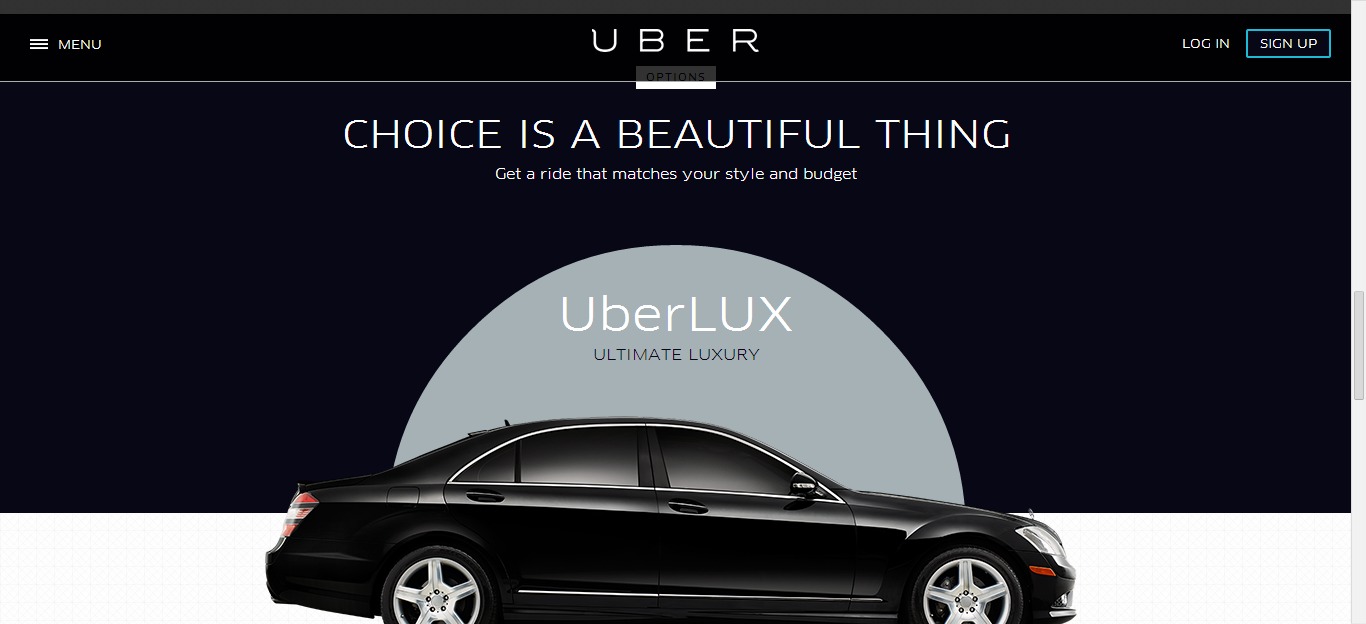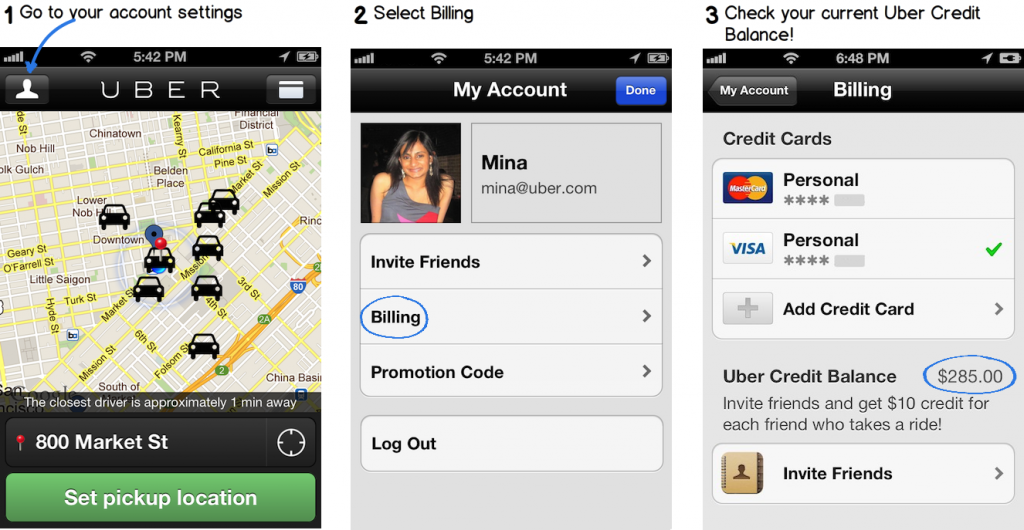
Pitch your Startup, App or Hardware or post a Startup Event or Startup Job

Ian A. Maxwell is a veteran Technology Entrepreneur and Venture Capitalist. He is currently CEO of BT Imaging, Chair of Instrument Works and Co-Founder of Accordia IP as well as a partner at Zetta Research and an Adjunct Professor at RMIT. He has a PhD in Chemistry and has either founded or worked at Memtec, Allen & Buckeridge, Redfern Photonics, Sydney University Polymer Centre, James Hardie, Viva Blu, Enikos, Wriota, RPO and Instrument Works. You can connect with him on Linkedin au.linkedin.com/in/maxwellian
I have just started using Uber in my home city of Sydney, which most of you will know is a taxi booking app used in 35 countries and over 100 cities around the world. Like most overnight start-up successes it was started about 5 years ago in San Francisco and has raised over $300m from Tier-one-ish Silicon Valley VC types.
This app is just that much better than all the others I have used. Finally there are enough cars using the Uber system in my home town for it to be a useful addition to my smartphone. Unlike many people I am vicious at killing apps on my phone that don’t meet my expectations of value. But Uber does and it’s a keeper.
The Uber differentiation is based on three things – some simple customer-focused ideas, great execution and a lot of capital.
The simple ideas are:
- There are four classes of cars (low cost private, taxi, black and lux) with progressively increasing costs. You choose depending on your budget and mood, and also the availability of cars.
- You can see where the available cars (in each category) are on a map which also allows you to set up your pick-up position (either where you are as detected by GPS or anywhere else). The app also gives you the ETA of the closest car and offers you the shortest pick up time.
- Once you select a type of car and book it, you then get to watch it on the map as it moves towards you, showing its ETA. I generally have better things to do though. Also you can cancel a booking with no ramifications if you change your mind.
- The driver doesn’t know where you are going so there is no sense that unfavourable fares are avoided. Indeed drivers seem to be rewarded on the number of jobs they do and their star rating (see below). The reward system for drives is in the customer’s interest
- On this point, all the Uber taxis and private cars seem to be very clean and tidy and certainly a notch above the standard. I am not sure if this because they vet their drivers or whether it’s just the star rating system in action
- When you arrive at a destination you just get out of the cab. The tax invoice is emailed to you. No stuffing around waiting for the printer to work. And the driver doesn’t have cash so isn’t a target for thieves. You also get charged the meter rate plus a $2 fee, and that’s it.
- When you look at your receipt you also get to rate the car and driver. Each driver then gets an average rating – when a car accepts your job you get to choose the booking and you also see the driver/car star rating beforehand.
- You can use the system in many cities all over the world and there is no setup required for any different geography. Often when travelling I find that negotiating local taxi ‘rules’ can be daunting. Melbourne for example, appears the same as Sydney, but it can be bloody hard getting a cab there sometimes for reasons I have never properly understood.
- There is the usual social media-like system in place that rewards users if they sign up new users

For any entrepreneur reading this, in order to execute a service like this you need:
- An insider’s knowledge of the industry and an open-minded user-based experiential understanding of what is wrong with the status quo
- This drives the founding team members to define and refine a new service, using new technology
- An ability to execute the software and the back-end, and also the business relationships needed to get the business moving
- An access to lots of capital to buy market share and momentum
- Luck
- First-mover (or thereabouts) advantage
- A hell of lot energy and big balls
Now here is some commentary on the default competition. The taxi industry in NSW has been accused of being an old school rent-seeking cartel (see for example, http://www.smh.com.au/nsw/call-to-end-taxi-industry-cartel-and-cabcharge-levy-20100602-wzun.html)
What should be an untaxed form of public transport is in fact an expensive service stuck well back in the 20th century. It has been argued that this is because of vested interests which have the ear of state politicians, who have in turn enacted many laws and rules to protect the cartel from competition. To wit, there is a controlled number of cabs on the road and their ‘plates’ have high asset value. Taxi users pay government-mandated exorbitant fees, most of which go to three recipients; government as a form ‘user-pays’ tax, the cab plate owners, and the taxi payment system owners, with a small profit or loss left over for the drivers.
Enter Uber and a host of other similar apps. These are using the availability of the internet, mobile phones and back-end services to disintermediate the taxi cartel in Sydney, and other places all over the world.
Today Uber offered me a ‘low cost’ option which uses private drivers and private cars at about half the cost of taxis. I expect the ‘taxi council’ to attempt to use their influence to make such a service illegal, probably on the basis of some concocted public safety concern or some-such (it’s happening already – see http://www.smh.com.au/digital-life/smartphone-apps/uber-ridesharing-service-under-investigation-as-public-warned-off-app-20140425-zqzed.html). To this I would say that there is nothing like an online social networking system with a star rating to weed out the issues – think of Ebay for example. I also note that all Uber drivers seem to have a dedicated iPhone from Uber which could be stuck to the window and would offer an opportunity for real-time passenger ‘safety’ monitoring, if this becomes an issue.
In fact Governments and those with a vested interest taxis will pull out all stops because Uber’s ‘low cost’ service effectively makes taxis obsolete. With technology like Uber’s we simply don’t need coloured cars with lights and signs all over them. Private cars are ‘lazy assets’ already paid for by their owners but often massively under-utilised – the Uber system allows them to be monetised at lower cost than taxis but still at profit for their owners. One wonders if the Uber system, once in place, can’t also be used to disintermediate other services that rely on local capital equipment like taxis.
Any cartel or monopoly relies on three things to maintain its position:
- Information asymmetry – in the case of taxis in the old days the users had no idea where taxis were at any time. Drivers couldn’t easily connect with users. Taxis had to be colourfully labelled. There was no technology available to cut out the middlemen; this has changed.
- Control of government – excessive profits are partially reinvested into the political process to maintain a control over any threats that arise, or to increase profits by enacting further customer-gouging rules.
- A capital barrier to entry – for taxis, in the past capital has been required to buy ‘plates’ (in NSW) in order to acquire any scale as an operator. For backend booking and payments system significant capital has been required to setup a phone booking system.
Haven’t mobile phones and the internet changed things? Every single product and service industry in this world has, is or will go through total restructure. I don’t expect our politicians to properly understand this and they will continually attempt to stand in the way of change, despite all the evidence that this is a waste of time.
But looking forward a few decades, when it’s all done and dusted, the Ubers of this world are simply trying to establish themselves as the next monopoly. The basic idea is to replace a bunch of local middlemen with one global middleman (themselves) or ‘One Asshole in the Middle’, as Jim Clark laughingly described them (and himself).
And since these new middlemen will be global we can expect their power, greed and arrogance to be substantially greater than today’s mob. Today’s disintermediating heroes may, in our lifetime, be the most hated ‘big brothers’. This is probably human nature and it’s going to take some remarkable entrepreneurs to resist the urge to over-exploit their opportunities once they have won the market.
In the meantime, keep up the good work Uber!
Pitch your Startup, App or Hardware or post a Startup Event or Startup Job
